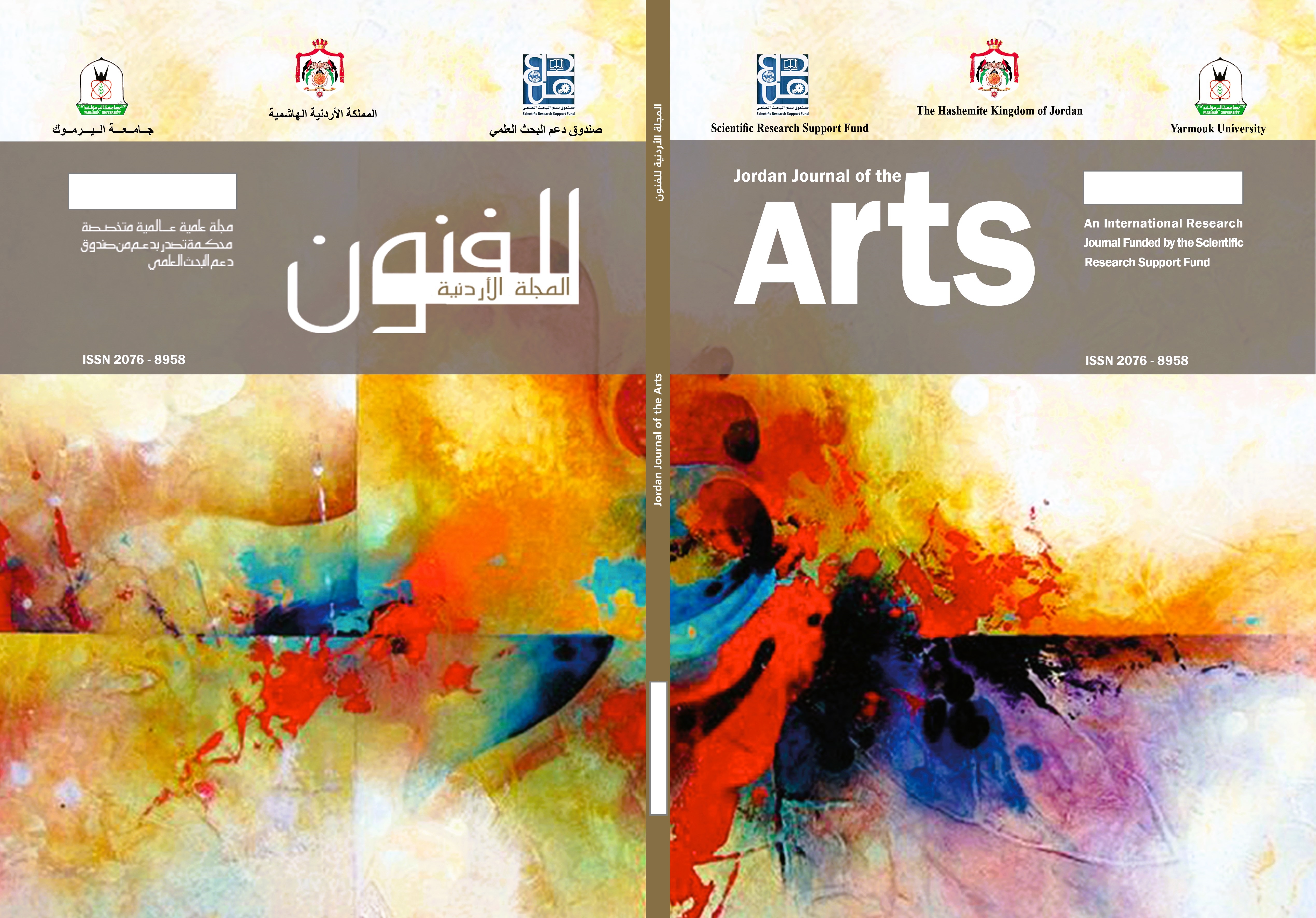Theoretical efforts in preparing the actor in Arab theater: Selected models
Keywords:
theoretical efforts, actor preparation, Arab theatreAbstract
The study aims to identify the theoretical efforts in preparing the actor in Arab theatre and the extent of convergence and divergence between the theoretical efforts in preparing the actor in the Arab theatre and in the world theatre. The researcher follows the descriptive analytical method, through the intentional selection of three theatrical experiences: the experience of ceremonial theater in Morocco, the experience of anthropological theater through the laboratory of Abdul Rahman Arnous, and the experience of ritual theater through the experience of the ritual theater group in Jordan. The temporal boundaries of the study came between the years (1975-2015 AD), while the spatial boundaries are the theatrical performances presented in Morocco, Egypt, and Jordan.
The researcher concludes that celebratory, anthropological, and ritual theaters, in their theorization, have surpassed Aristotelian dramatic theater. Like Chinese opera, which represents the basic performance form among pre-theatrical forms in terms of being a theater that (narrates) human action, they have moved to interactive theater that works to revive an action that creates a mechanical demonstration, a demonstration that takes place in the presence of everyone and with the participation of everyone. Anthropological, ritual, and celebratory theater is based on the heritage of the Arab people, in order to find a new character that interacts and engages with the Arab reality, far from alienation, cultural and civilizational estrangement, and intellectual dependence on the West. It adopts a theatrical form derived from traditional folk performance forms, such as the Samir, Aragoz arts, shadow fantasy, and folk rituals. Here it meets with Oriental theater in Noh and Kabuki, and also meets with the theories of Grotowski, Artaud, and Eugenio Barba in returning to origins, primitivism, and folk myths.


